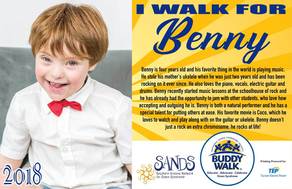 It is Down syndrome awareness month and I have to tell you, sometimes I wish that I could be a little less aware of Down syndrome. Some days I don't feel like being an advocate, or a mama bear or a warrior mom. Some days I just want to be a regular old mom. This weekend is my birthday and I will be spending it at a leadership workshop on how to advocate for people with disabilities. The next weekend I'll be at the Buddy walk, listening to speeches about Down syndrome and walking with my son Benny. Personally I would rather people forget that Benny has Down syndrome at all. I wish they could just see him for who he is - a bright and bubbly preschooler. But even though I'm tired of talking about Down syndrome I keep on doing it. I keep on writing blog posts and sharing in real life and on social media because every day I see how much prejudice there still is against people with Down syndrome. Disabilities are the last acceptable prejudice and I want to change that in my lifetime. For Benny. And for all of the many people who have disabilities. And so I keep soldiering on this uphill battle, thankful to all who came before me and paved the way for me and my family. Recently I encountered this prejudice while looking into kindergartens with my friend who has a typical son the same age as Benny. The experience was heartbreaking. A woman giving a tour at one middle of the road charter school was stumped when my friend asked what kind of services they had for students with special needs. She had just finished waxing poetic about the self-contained classroom for gifted and talented students (GATE) but stuttered "special needs?" and looked completely perplexed as to why we would ask about something so obviously horrifying. (Nevermind that services for gifted students are also under the umbrella of special education.) "My son has Down syndrome" I explained. "Oh, we've never had any students with Down syndrome. I don't know what we would be able to provide for a student with Down syndrome." she said looking absolutely petrified at the thought of my son and his potential extra needs coming to her school. Defensively I told her that I had visited our designated school and that it was far superior to this one, to which she looked relieved and told me that I should "just keep him there". The next day my friend called me ecstatic about a public Montessori school he had just toured. I listened excitedly as he talked about the open classrooms with multiple grades, the project based learning, the GATE certified teachers in every classroom and the violin training every student receives. Then he mentioned that he had asked and the school didn't have any resources for kids with special needs like Benny. I got off the phone and cried. I wanted to be happy for my friend, I really did, but in that moment all I could feel was heartbreak that my son wasn't welcome at that school. And that is what discrimination looks like. These publicly funded schools are actually required by law to provide a free appropriate public education to all students regardless of their extra needs, but they don't want to. So instead they discourage parents of children with disabilities from enrolling their children, despite decades of research that shows undeniably that an inclusion model that provides appropriate accommodations is far superior for every student in the classroom. Last night the fact that my son is being denied the same opportunities for kindergarten as his peers made me cry. But tomorrow I will not cry. Tomorrow I will arm myself with an idea. The IDEA specifically, the Individuals with Disabilities Education Act. And I am going to go to the district office and I am going to give them a piece of my mind. This is what happens to parents of kids who have Down syndrome. You get tired of talking about it. You get tired of bringing everyone's awareness to it. You wish everyone would be less aware of it. But then somebody discriminates against your kid because of it, and they awaken the advocate, the mama bear and the warrior parent inside of you. Soon they will hear your roar and they will know no mercy.
0 Comments
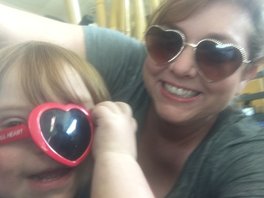 In our achievement driven world having a child with Down syndrome has been a huge eye opener for me. I didn't think much about the nature of disabilities before I had Benny, but now that I know him I want everyone else to know that disabilities bring something valuable to our world. Every child brings their own unique set of attributes into the world and Benny is no different. His beautiful smile and exuberant nature lights up our lives. He has a knack for cheering people up. He has a profound appreciation for good music, friends and family. These are not the achievements that pediatricians check off on developmental questionnaire boxes, but the best things in life cannot be measured. Recently I watched the TedX talk Socially Constructing Down Syndrome by fellow rockin mom Cara Jacocks. Towards the end of her talk she mentions the many accomplishments of adults with Down syndrome who have achieved what we consider stereotypical success in our society - high profile jobs as actors, models, athletes, entrepreneurs, etc. While these successes are exciting, and as a mom I always love sharing the accomplishments of others with Down syndrome, I worry that highlighting these rare high achievers may do more harm than good towards changing the underlying prejudice that is so harmful to our families. If we really want to change the conversation around disabilities we need to talk about what those disabilities bring to the world, not what people with disabilities are "able" to do despite their disabilities. Many people with Down syndrome will not become high career achievers. In fact, the statistics on employment for people with intellectual developmental disabilities is abysmally low. Many of us who have children with Down syndrome know that there is a high possibility that they may need care for their entire lives. But that does not mean that their lives are not worth living. If we really want to change the conversation around disabilities we need to talk about what those disabilities bring to the world, not what people with disabilities are "able" to do despite their disabilities.  While working on an episode of my podcast T21Action last year I had an eye opening discussion with Sandra McElwee, author, activist and mother of Sean from the reality show Born this Way. One of the books she has written about Sean talks about the importance of inclusion in education. When I asked her why inclusion was important, she surprised me by saying that inclusion is better for every child in a classroom, including the highly gifted children. Statistically, every student in a classroom benefits from having children with disabilities present. All of the students benefit not just socially, emotionally, and academically but they even score higher on intelligence tests. Apparently learning together with people with disabilities actually makes you smarter. This kind of blew my mind. I asked Sandra how sharing the classroom with a student who has disabilities could actually improve IQ scores of neuro-typical students because it seemed too incredible to be true. She said that we learn best when we teach others, and that it's also a confidence booster, both of which can increase intelligence test scores. We live in such a high achievement world, and I’ve seen so many parents fighting to get their children into the “best” schools, which are so often ones that cater to students who are gifted high achievers and exclude different learners who may not test as well. Apparently learning together with people with disabilities actually makes you smarter. 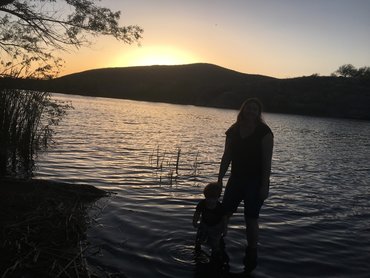 If including students with disabilities raises the abilities of every single student in the room, than our current model is incredibly damaging to every child. This follows into the adult world, where the statistics on the workplace match those in the classroom. Workplaces that include people with disabilities report more productivity, job satisfaction and retention of workers. In other words, people work harder, are happier, and more likely to continue working for that employer for longer. With statistics like that companies should be clamoring to hire people with disabilities! Instead, as I mentioned previously, people with disabilities, especially intellectual ones, have the highest rate of unemployment in the United States. This needs to change, and it starts with a paradigm shift about ability. These statistics prove that it is not the rare high achievements of people with disabilities that bring value to our world. It is the disability itself that makes our lives better. How is this possible? We have been brought up to believe that the worst thing in the world is to not have the same abilities as everyone else. We have government programs designed to prevent people with disabilities from being born at all, because our fear of them is so great. What if people with disabilities aren’t a burden to society at all? What if they bring something critical to our world? This is an important question to ask ourselves, as early prenatal testing has already begun the process of eliminating people with disabilities from society not just from exclusion but from having never been born at all. As a mother I still prefer to highlight my son’s capabilities, and I still worry about what he may never be capable of. I have a long way to go before I rid myself of the societal conditioning that makes it so hard to embrace disability. The truth is, this is what makes it so hard to embrace all of myself as well. I am not capable of everything. I criticize myself for not being more organized, for being so terrible at math, for my inability to properly aim or catch a ball in any sport. The truth is we all have disabilities in one way or another, and we all spend too much time trying to compensate for them. Separating ourselves from people with disabilities keeps us from seeing the beauty in ourselves and our own challenges and areas of weakness. Today I challenge myself to accept and love the parts of myself that struggle, and to find pride in the things I cannot do. We cannot control or change anyone but ourselves, but I hope that in working on my own acceptance of disabilities that I inspire others to do the same. Let’s embrace our disabilities, celebrate our differences, and let go of our assumptions about what creates worth. By doing so you may find, as I did, that the world is a much better place than you ever imagined. |
Archives
April 2022
AuthorSince becoming a mom to a little boy with Trisomy 21 I have written a lot about Down syndrome and disabilities. I am a storyteller, wife and mom to a teen and a toddler. Life is busy! Categories
All
|
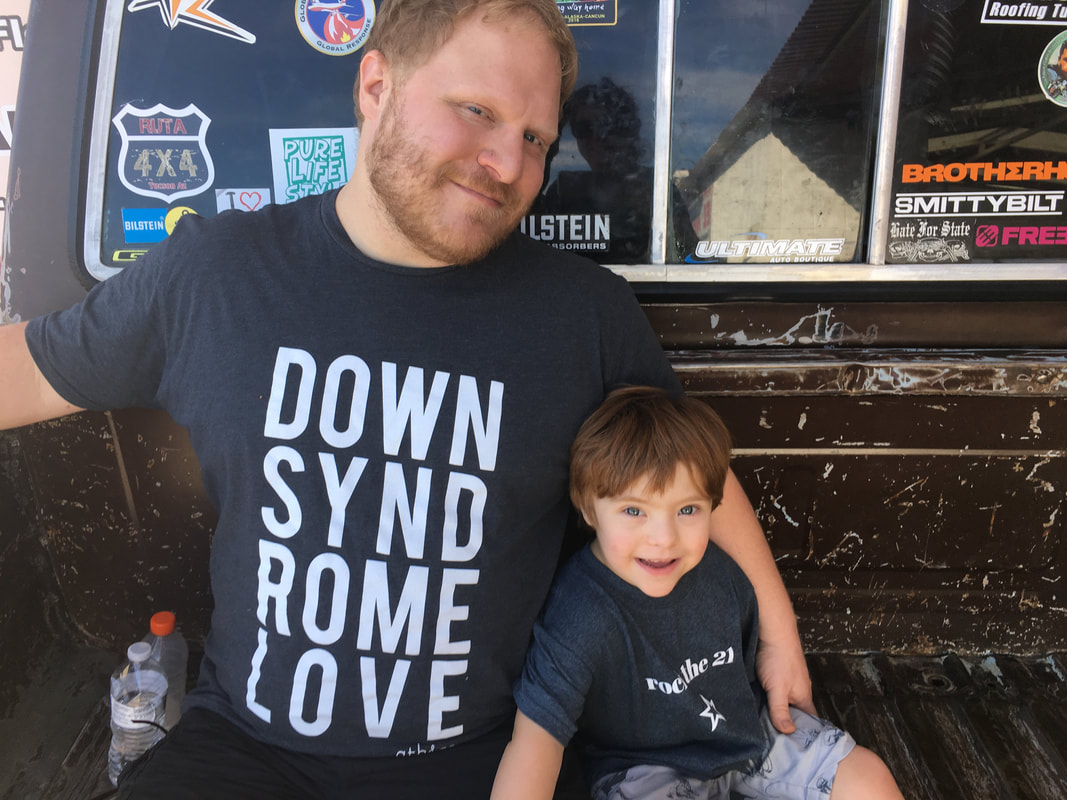
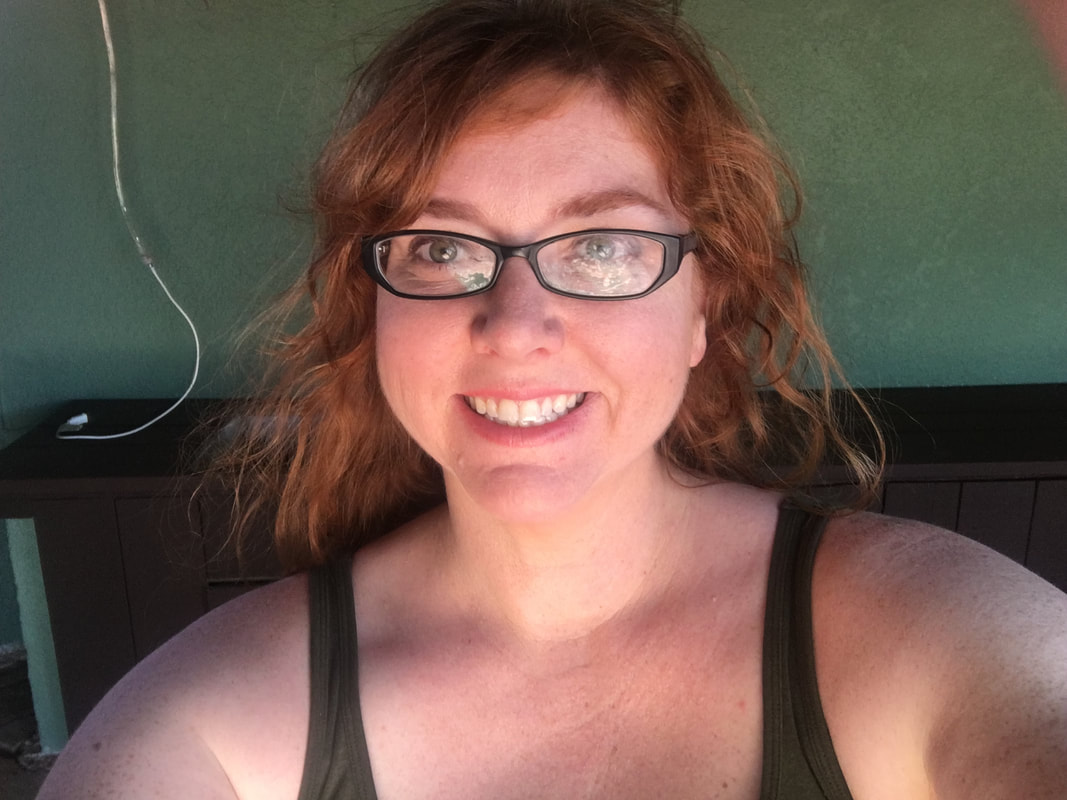
 RSS Feed
RSS Feed